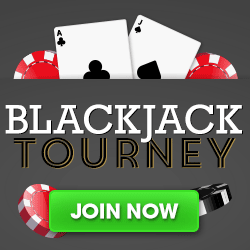Dutch Gambling Regulator KSA Presents New Guidance on License Application
November 2, 2020 Aleksandra Zolotic

De Kansspelautoriteit (KSA), a Dutch gambling regulator goes public with the new set of and conditions for a license application. Done under the country’s new Remote Gambling Act, the new version includes reporting a variety of the applicant’s policies and details of how its “cooling off” requirements will be applied.
As per the most recent decision, the Act is set to come into force on 1 March 2021, with the online gambling market to then launch on 1 September. Originally, the market introduction was scheduled for July 2020, but it was delayed due to the current situation in the world.
Thorough Examination of Applicants
The regulator stressed out that a license would be granted without any doubts if an operator had not recently offered online games to the Dutch market and in case there were “no other reasons to doubt [the operator’s] reliability.”
In order to determine precisely…
…whether a company had distributed games across this territory, KSA would examine if the specific brand offered games on .NL websites, their site, or parts of it were in Dutch. Also, it will check if they d in Dutch media or their site contained words, imagery, or concepts typical of the Netherlands.
This should encom the period of the previous 32 months. Also, the application will also be sent to the KSA’s Management Board for an integrity assessment.
As far as the regulator pointed out…
… there is no clear guideline for how many offenses would see a license application rejected. But, it is sure that more numerous or more recent offenses would make rejection more likely.
According to KSA, “the non-payment or late payment of fines” or tax is also a serious issue that may be uncovered in the integrity assessment, along with providing false information on the application. Those are also events that could lead to refusal.
What Do Operators Need to Pay Special Attention to?
The companies interested in operating in the Netherlands will need to complete a form available on the KSA website, stating what sort of games are they interested in distributing.
To receive approval from the regulator…
… an operator must provide its policies on a series of different issues. Among these is its marketing policy, where the licensee must show “what measures the applicant has taken to prevent aggressive advertising,” as well as solutions to prevent misleading ments or the ones that lead to excessive gambling.
Applicants are demanded to come up with an addiction prevention policy, which must encom advice from addiction experts and reasons if at any point it is not in accordance with this advice.
Moreover…
… policies on anti-money laundering and customer due diligence are requested. They must include the method of conducting a source of funds investigation, as well as how unusual transactions are reported.
Also, license applicants must produce a payment policy document that would give an insight into the banking methods they will accept. Furthermore, potential licensees must also prove that they keep player funds separate from other funds and that these funds are guaranteed either through insurance or in a trust.
Plus, applicants are also required to produce an audited statement from the last 30 days, as well as offering a €50,000 security payment.
Mandatory Tool for Self-Exclusion
In addition to all the above-mentioned requirements, all licensees must be connected to the self-exclusion tool Cruks. The Dutch government has already submitted information about the mechanisms behind Cruks to the European Commission.
On top of that, the regulator launched a consultation on the country’s new player protection rules. Among the suggested measures, there’s a ban on offering timed bonuses and a requirement for content distributors to conduct a risk analysis of all their games.
Source:
“KSA sets out details of license application process”, Daniel O’ Boyle, igamingbusiness.com, October 30, 2020.























I think it’s great KSA came up with such detailed instructions. It will surely make it simpler for interested parties to check their policies and adjust them if they want to offer games to Dutch players.